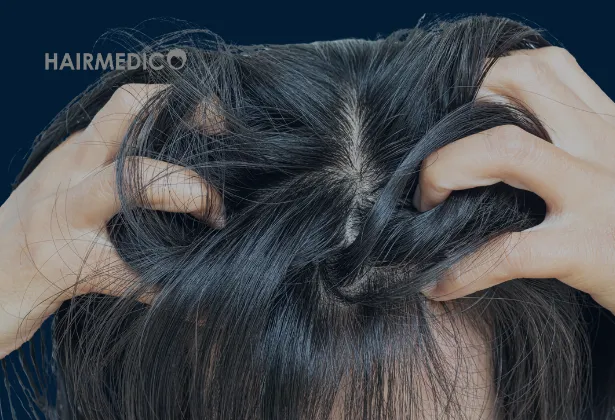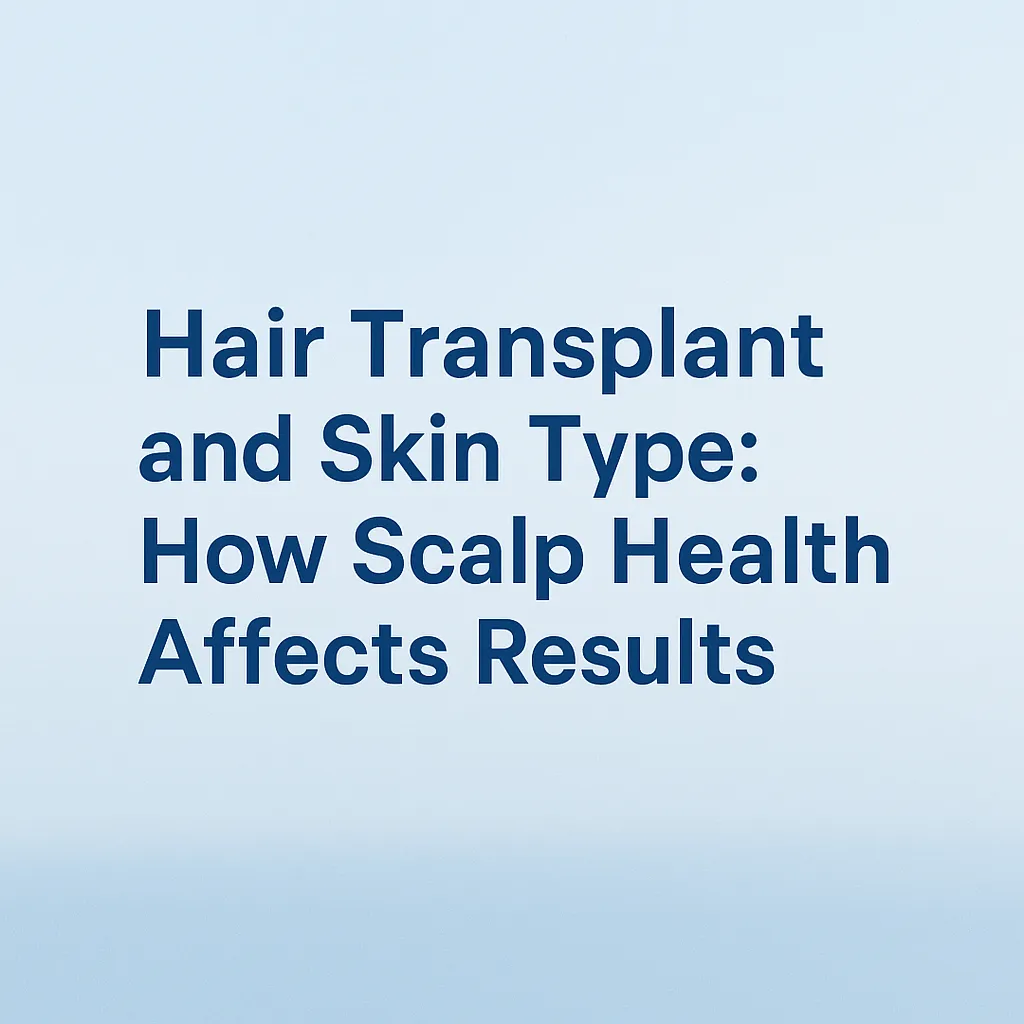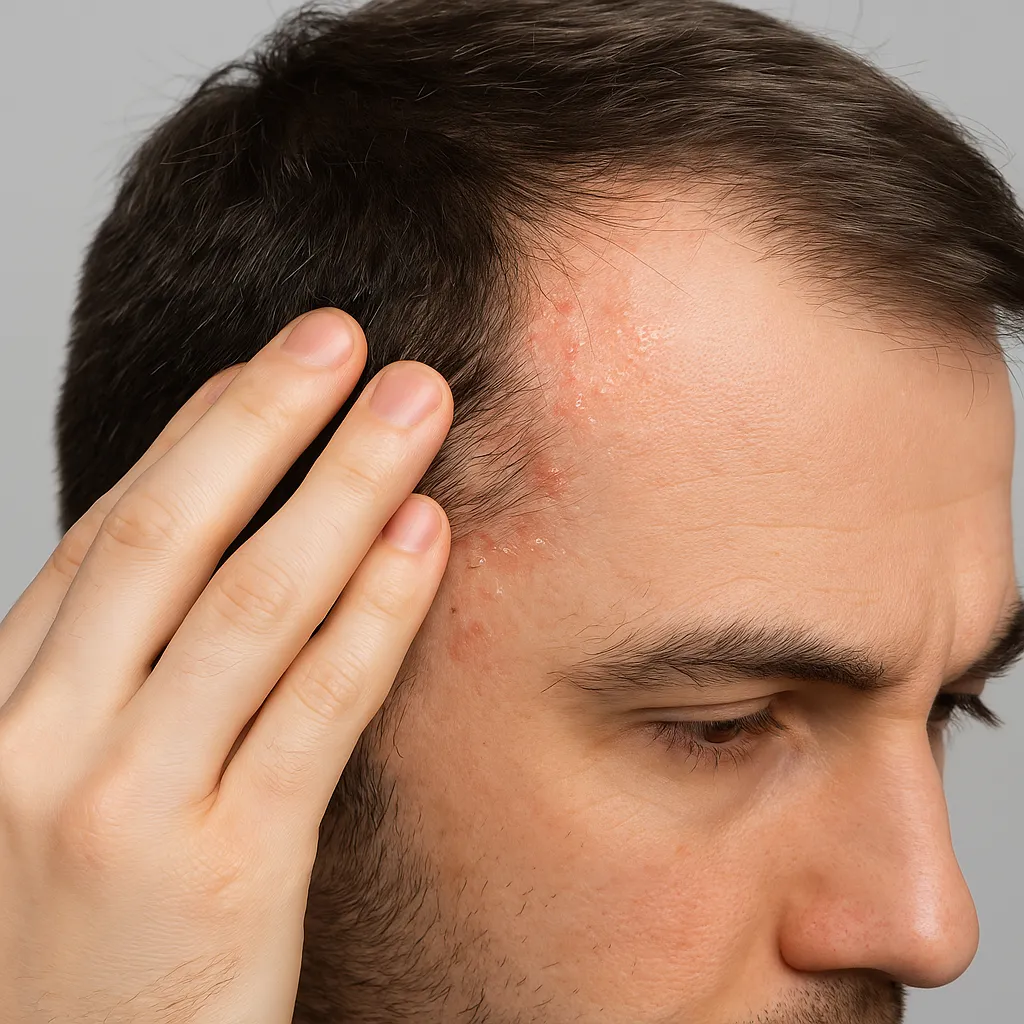
Updated: June 20, 2025
When considering a hair transplant, most people focus on graft count, technique (FUE or DHI), and the clinic's reputation. But one crucial element often overlooked is scalp health and skin type. Whether you have oily, dry, sensitive, dandruff-prone, or psoriasis-affected skin, these factors play a significant role in the planning and success of your procedure.
In this article, we’ll explore how skin type affects healing, graft survival, and aesthetic results—and how Hairmedico adapts its approach for each patient using personalized care protocols.
The scalp isn’t just a canvas—it’s a living ecosystem. Your skin’s hydration levels, oil production, immune reactivity, and circulation patterns influence how well grafts survive and how fast you recover.
Excess sebum can clog pores and affect graft placement.
Risk of infection or inflammation post-surgery is slightly higher.
Requires pre-operative cleansing and specialized antiseptic regimens.
Often linked with poor blood circulation.
Can delay healing and increase scab formation.
Needs intensive moisturization protocols pre- and post-surgery.
Prone to redness, irritation, or allergic reactions to anesthetics or dressings.
Requires hypoallergenic materials and custom anesthesia.
Excess flaking can disrupt the implantation site.
Higher inflammation and infection risk.
Needs dermatological coordination before transplant.


A healthy scalp has strong microcirculation that nourishes both existing hair and implanted grafts. Poor circulation is common in dry or aging scalps and can reduce oxygen and nutrient delivery to new follicles.
Hairmedico uses diagnostic tools to assess:
Capillary flow in donor and recipient areas
Skin elasticity and hydration levels
Underlying conditions (seborrheic dermatitis, psoriasis, etc.)
This allows the team to design a procedure that compensates for any skin limitations.
Each patient receives a pre-operative scalp assessment to determine their skin profile. Based on the results, Dr. Arslan Musbeh and his team apply a customized strategy:
Oily Skin: Pre-op deep cleansing and post-op topical balancing serums.
Dry Skin: Hydration therapy and non-alcoholic lotions.
Sensitive Skin: Cooling gels and minimal-contact bandages.
Inflamed Skin: Topical anti-inflammatories and coordination with dermatologists.
Learn more about our Hair Transplant Procedures and how we customize for each case.
| Skin Type | Expected Healing | Post-Op Care Needs |
|---|---|---|
| Oily | 7-10 days | Antibacterial cleansing |
| Dry | 10-14 days | Moisturizing + gentle washing |
| Sensitive | 10-12 days | Anti-inflammatory cream |
| Psoriasis | Varies (14+) | Dermatologist-guided care |
Your healing journey is unique. We provide custom Post-Op Recovery Plans to guide you every step of the way.
Yes. For example:
DHI is preferred for sensitive or flaky skin since it minimizes trauma.
FUE with sapphire blades is ideal for oily or tough scalps due to precision and hygiene.
Patients with active psoriasis may need a staged transplant strategy.
Consult with our experts via online consultation to determine the best method for your case.
To enhance scalp health and outcomes:
PRP Therapy: Boosts circulation and speeds up healing
Biotin and Zinc Supplements: Help in skin repair and follicle nourishment
Topical Mesotherapy: Improves skin hydration and reduces inflammation
Explore our Pricing page for treatment packages.
Explore Further
Ready to Take the Next Step?
Schedule your online consultation with Hairmedico and get a personalized hair analysis from Dr. Arslan Musbeh.
Book your consultation now →
Your consultant is ready to answer your hair transplant questions, and you can also get a personalized online hair analysis.